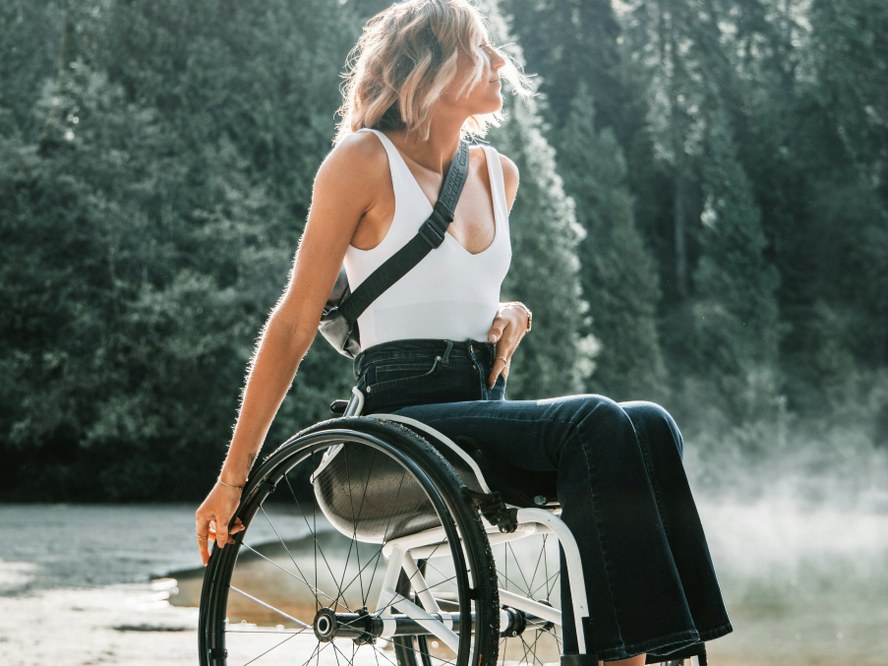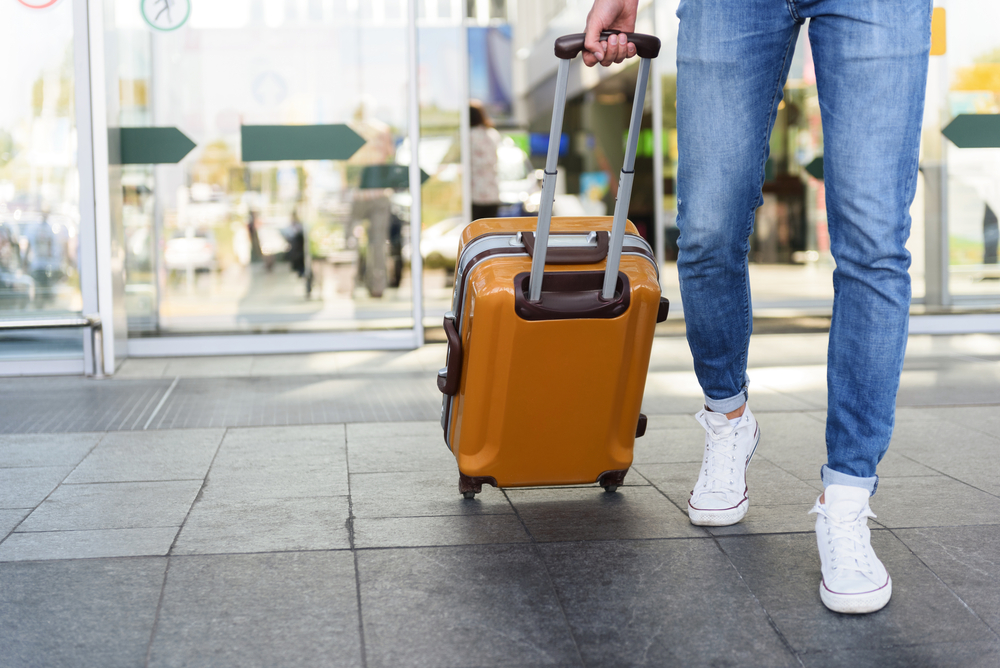Holidays provide the perfect opportunity to unwind and relax. However, planning a holiday is not always a straightforward process, especially when one of your children or a parent has mobility needs, or you might be travelling alone as a single parent. From sourcing flights to finding accessible accommodation, families have to consider many additional factors when planning a holiday. Here are some first steps you will need to take if you want to have an enjoyable and hassle-free accessible holiday with your family:
Researching Accessible Destinations and Accommodation
Let’s start with one of the most important steps in planning a holiday for someone with mobility issues: selecting a destination and accommodation that meets your needs. If you haven’t been on a fully accessible holiday abroad yet, you might want to trial a trip in the UK or a short break in an accessible city in Europe before going on a holiday abroad or venturing further afield.
The best advice is to start your research early. Doing so will enable you to ensure that you have every small detail organised in plenty of time, making the process smoother for the whole family. Here is how to begin your research:
- Accessible destinations: Thanks to the power of the internet, there are plenty of online platforms to browse offering valuable information about the most accessible destinations – from disabled-friendly beach destinations around the world to the most accessible cities in Europe. These resources are well worth a read to help you get started!
- Hotel and resort accessibility: Of course, you want somewhere to stay, so look for properties that have been certified as accessible or have specific amenities like roll-in showers, grab bars and wheelchair-friendly rooms.
- Travel specialists: The world is changing and travel is becoming more accessible. But planning every detail yourself is hard work! If you want expert help preparing an accessible holiday, go to a travel agency specialising in accessible travel or book directly with a niche tour operator. These companies have extensive knowledge and connections to meet your accommodation and transportation needs.
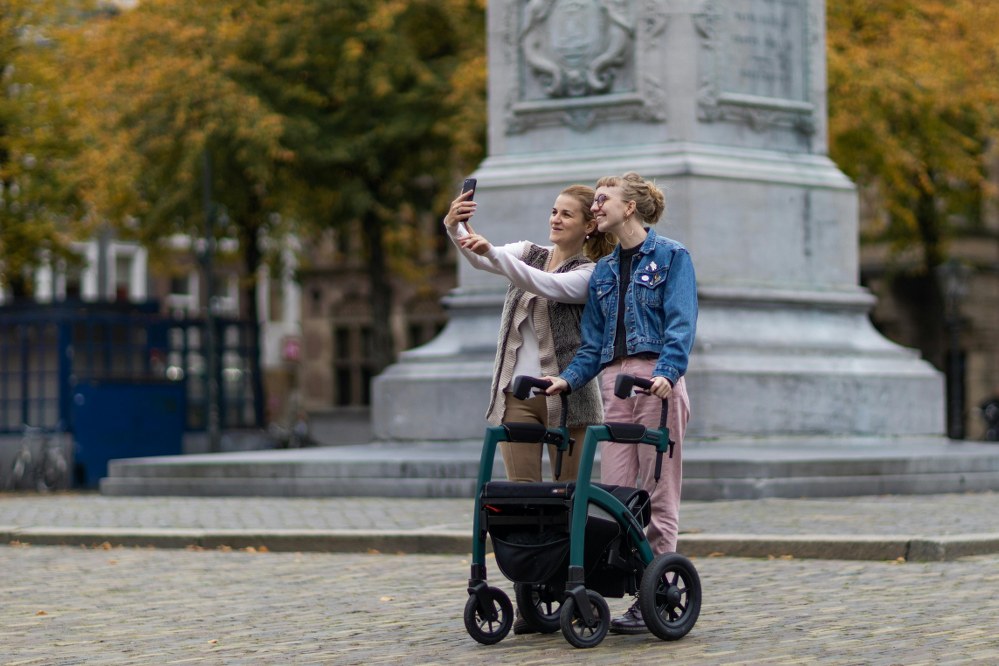
Arranging Accessible Transportation
Are you wondering how to get to your destination? Organising accessible travel to and from your holiday destination and navigating within the area requires careful consideration when mobility issues are involved. You could try either of these options:
- Accessible vehicles: If you are able to drive to your destination, bringing your own adapted car is, no doubt, the easiest option. If you only need a car at your destination, make sure to book an accessible taxi, shuttle services, or your accessible rental car well in advance, as some countries offer a limited choice of adapted vehicles especially in high season.
- Public transport: Research the accessibility of public transportation options, such as buses, trains, and airports, at your destination. Look for services that cater to individuals with mobility problems.
- Travel assistance: Flying with a child in a wheelchair may sound stressful at first, but many airlines and train services offer travel assistance services, such as wheelchair escorts or assistance with boarding and disembarking. To ensure your travels go smoothly, make sure to request these services in advance. In addition, check the measurements of your mobility equipment to ensure your wheelchair or mobility scooter can be transported. Don’t forget to check the facilities available at train terminals and airports. Gatwick airport offers a stress-free travel experience, for example, through services, such as special assistance, sensory rooms, play areas, and more.
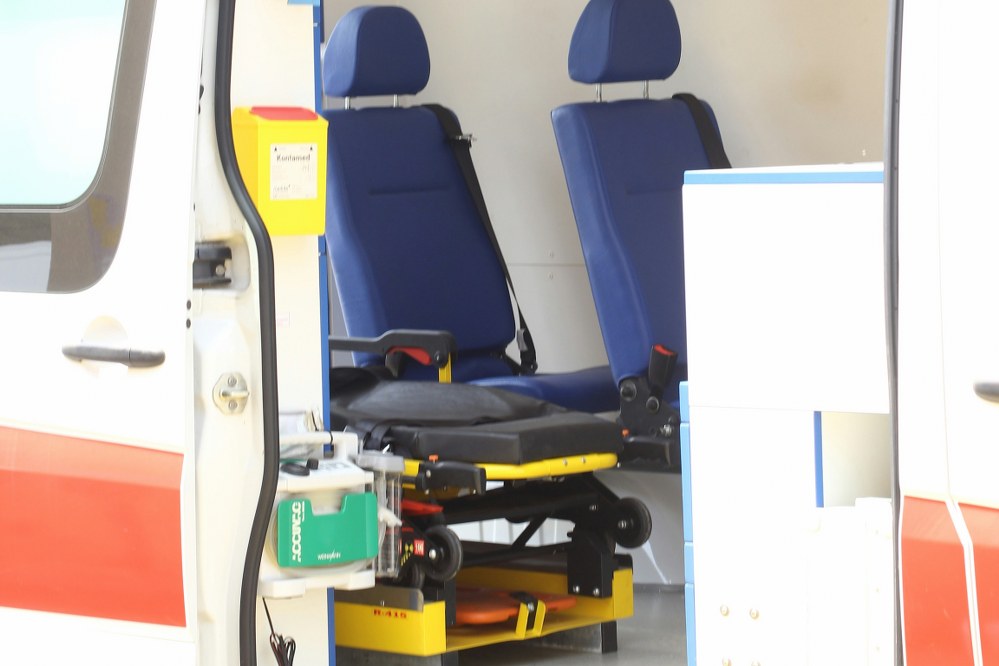
Sourcing Mobility Aids and Equipment
Destination? Chosen. Accommodation? Booked. Transport? Sorted. Once you have the main pillars of your accessible holiday sorted, you can start planning more specific elements. Do you or your child require mobility aids or specialised equipment? If so, you should plan and ensure their needs are met throughout the holiday. Think about the following:
- Walking aids: If you or your child require a cane, crutches, or a rollator/walker to get around, make sure to notify your airline. Most airlines will let you take these types of mobility aid on board for free but might want to know the specifications in advance. Depending on your mobility, considering using a hands free knee crutch or walking cane to move around at the airport and board your flight.
- Mobility scooters and wheelchairs: Are you planning to bring a mobility scooter or powered wheelchair? Make sure your airline, train operator, or adapted car can transport the equipment. When you buy a powerchair, make sure it is suitable for both home and holidays, especially if you are planning to travel frequently. A good supplier will give you expert advice and work with you to find the right model for your needs.
- Medical equipment: If your loved one requires specialised medical equipment, such as oxygen tanks or hospital beds, the easiest solution might be to research local suppliers and make arrangements for delivery or rental. If you are staying in a hotel with accessible rooms, chances are that the management can recommend local companies who can help.
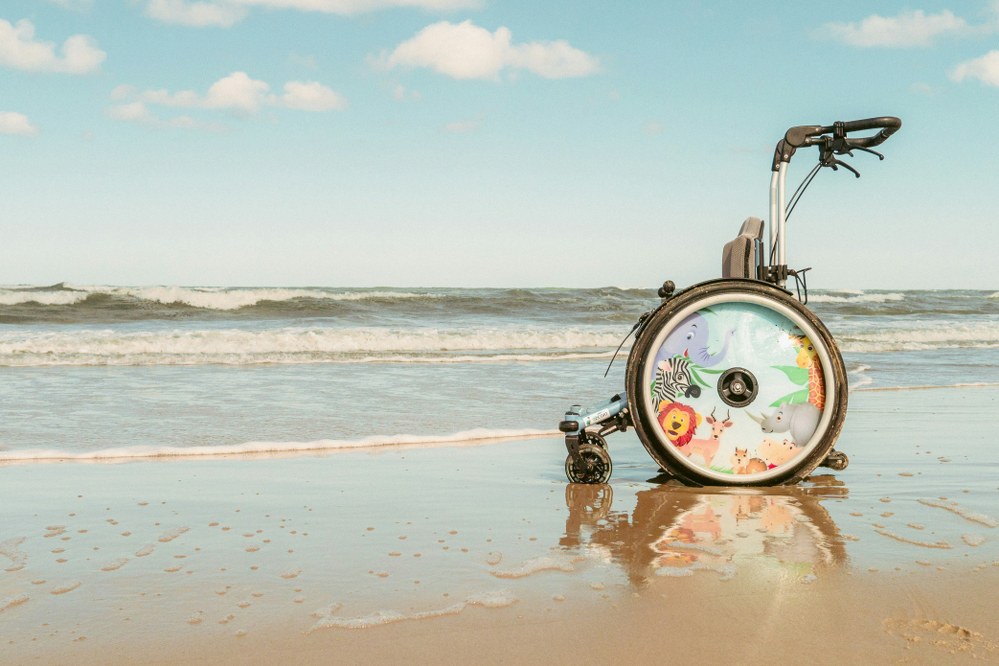
Packing Essentials and Planning for Emergencies
Now it’s time to get packing. One thing you are probably all too aware of is that travelling with mobility needs means having to be prepared for any eventuality. Hence a pre-travel check list for your family’s specific needs is absolutely essential. Here are some of the items you will need to think of:
- Medication and medical supplies: Pack ample supplies of any necessary medication, medical equipment, and supplies, i.e. enough for the duration of your holiday, plus extras in case of delays or emergencies. It’s best to take more than to stress because you haven’t taken enough.
- Emergency contact information: Carry a list of emergency contacts, including your doctors’ contact details, travel insurance information, and local medical facilities at your destination. It’s always wise to carry a printout in addition to digital copies in case you are low on battery or don’t have access to Wi-Fi.
- Mobility aid repair kit: Pack a basic repair kit for your mobility aids, including spare parts, tools, and necessary supplies for minor repairs or adjustments because mobility aids can get damaged in transport. The last thing you want is to be unable to go anywhere because your mobility aid is out of action, and you are unable to fix it.
- Travel insurance: Navigating holiday insurance can be a minefield, especially when pre-existing conditions are involved. Look for a specialist insurer and invest in comprehensive travel insurance. Your chosen policy should cover medical emergencies, trip cancellations or interruptions, and any specific needs of your family member. Take out a policy as soon as you book your accessible holiday to ensure you are covered in case anything occurs between the time of booking and the day you depart.
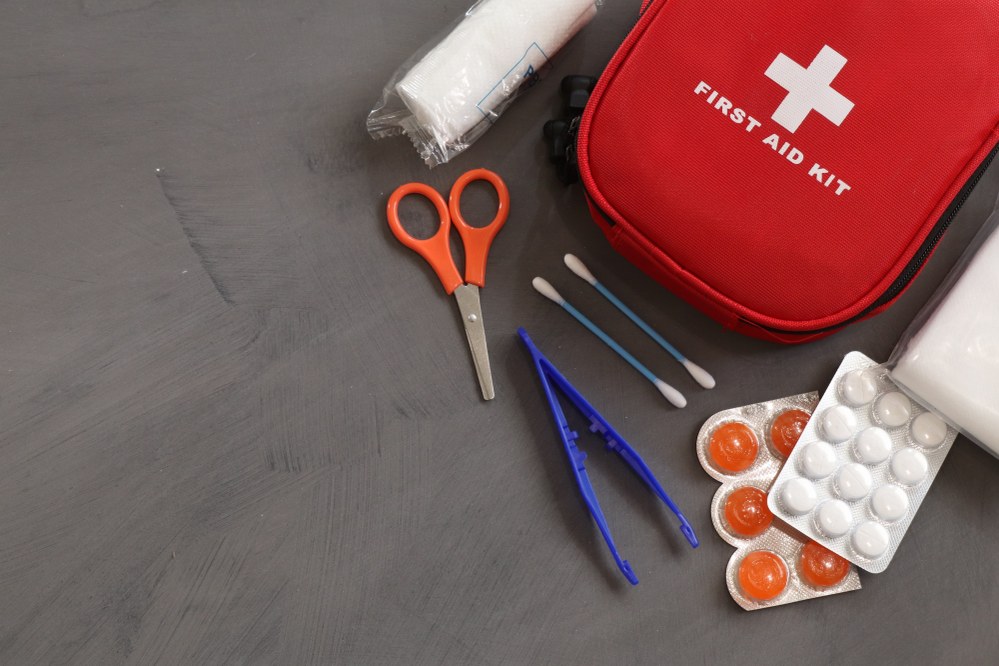
Connecting with Local Resources and Support
As the countdown to your holiday commences, the excitement for the trip builds. Before your holiday, why not research and familiarise yourself with local resources and support services available at your destination? This can be an additional help in making the holiday as smooth an experience as possible. You might consider:
- Support organisations: Look for organisations that help people with disabilities and their families at your chosen destination. If you are faced with a language barrier, look for an ex-pat community that will be able to help point you in the right direction.
- Local medical facilities: Identify nearby hospitals, clinics, or medical supply stores that can assist with any medical needs or equipment repairs during your stay. This is for peace of mind, so that you do not need to stress should a situation arise where your family will require medical help.
Involving all Family Members
Throughout the planning process, involve all family members, in particular, the person that has mobility needs, whether it’s a partner, a parent, a child, or another adult in the family. Encourage them to express their preferences, concerns, and any specific requirements they may have. Their input can help ensure a smooth and enjoyable experience for everyone while maintaining their sense of independence and autonomy.
Embracing a Positive Mindset
While planning an accessible holiday for someone with mobility issues may seem daunting, it’s important to approach the experience with a positive and flexible mindset. Unforeseen challenges or accessibility issues may arise, but with proper preparation and a willingness to adapt, these obstacles can be overcome.
Encourage open communication within your family, remain patient, and focus on creating memorable experiences together. A positive attitude can go a long way in ensuring a successful and enjoyable holiday for everyone involved.

